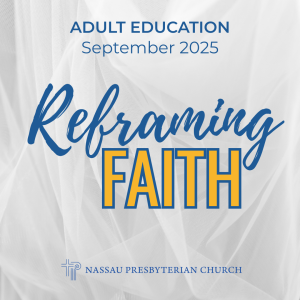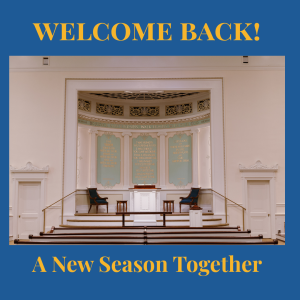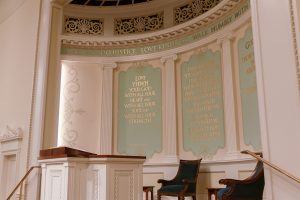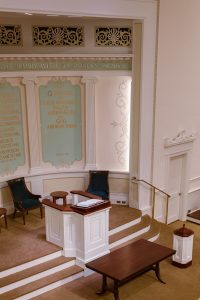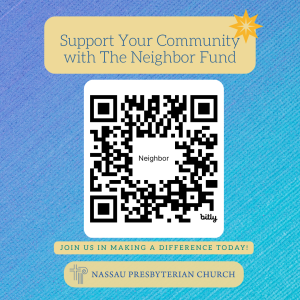Luke 14:25-35
September 7
David A. Davis
Jump to audio
I don’t like that Jesus uses the word hate. I would say that “I hate that Jesus uses the word hate,” but we taught our children that we didn’t use that word in our house. Same with “shut up”. The expression was not/is not welcomed in our home. “Whoever comes to me and does not hate father and mother, wife and children, brothers and sisters, yes, and even life itself, cannot be my disciple.” Seriously, Jesus! Jesus is surely not the only one in the bible to use the word. “ I hate, I despise your festivals, and I take no delight in your solemn assemblies…Take away from me the noise of your songs; I will not listen to the melody of your harps. But let justice roll down like water, and righteousness like and everflowing stream.” The Hebrew prophet Amos. “The spirit of the Lord God is upon me, because the Lord has anointed me, he has sent me to bring good news to the oppressed, to bind up the brokenhearted, to proclaim liberty to the captives, and release to the prisoners…For I, the Lord, love justice, I hate robbery and wrongdoing.” Isaiah, chapter 61.
“Those who say, ‘I love God’ and hate their brothers or sisters are liars, for those who do not love a brother or sister whom they have seen, cannot love God whom they have not seen. The commandment we have from God is this: those who love God must love their brothers and sisters also.” The epistle of I John. Did you hear that one, Jesus? “Let love be genuine; hate what is evil, hold fast to what is good.” The Apostle Paul in Romans. Hate what is evil. That sounds better. In the Gospel of John, Jesus says, “The world cannot hate you, but it hates me because I testify against it that its works are evil.” I’m okay with that one. The Sermon on the Mount in Matthew: “You have heard that it was said, ‘You shall love your neighbor and hate your enemy.’ But I say to you, Love your enemies and pray for those who persecute you.” That’s a very tough ask, but at least I get it.
“Whoever comes to me does not hate…father and mother…and even life itself.” So I went looking for other translations to help me feel better about the hate. I typed in Luke 14:26 and then clicked on “All English Translations”. It didn’t help. A handful, as in three or four, offered an alternative. The rest stuck with “hate”. The Common English Version reads “You cannot be my disciple, unless you love me more than you love your father and mother, your wife and children, and your brothers and sisters. You cannot follow me unless you love me more than you love your own life”. That helps a bit, but the Greek text is very clear. I went to the Greek dictionary in hopes of variation on a verb. It didn’t help. Definition: “hate, detest, abhor”. The example Jesus gives about a king going to war against another king isn’t all that great either. But there is even more battle in the bible than there is hate. Then there’s the selling of all your possessions. Jesus isn’t just talking to the rich young ruler as he does later in Luke, telling him to sell all his possessions and give them to the poor. Hating those you love. Carrying the cross. Building a tower. Going out to wage war. Selling all your possessions. Salt with no taste. “Let anyone with ears to hear listen!” Seriously, Jesus!
In his commentary on Luke in the Interpretation series, Fred Craddock points out that the use of the word “hate” in the ancient Semitic world was a common expression that was not about emotion or matters of the heart. It is more related to turning away from or detaching. If Jesus’ intended connotation here was just “hate” being “hate”, Craddock points out, this one verse would be in contrast to all the calls to love and kindness that fill the verses of both testaments, including the verses behind me on the chancel wall. Maybe the word functioned back then, something like the word “sick” today. When someone decades younger than me refers to something as “sick”, I have to stop and think whether they are referring to something as good or bad. “That is so sick!” Craddock makes the argument that “hate” had a whole other meaning. “What is demanded of disciples”, he concludes, “is that in the network of many loyalties in which all of us live, the claim of Christ and the gospel not only takes precedence but, in fact, redefines the others.”
This difficult teaching from the lips of Jesus reminds me of a similarly perplexing part of the Sermon on the Mount in Matthew. In the midst of that sermon, Jesus preaches, “If your right eye causes you to sin, tear it out and throw it away; it is better for you to lose one of your members than for your whole body to be thrown into hell. And if your right hand causes you to sin, cut it off and throw it away; it is better for you to lose one of your members than for your whole body to go into hell.” And somewhere on that hill, someone in the congregation shouts “Amen!” “Come on now,” “Preach, Jesus Preach!” Where are the biblical claims to inerrancy and literal interpretations when Jesus is talking about lopping off body parts? It’s not about plucking your eye, it is about having the ears to hear. “Let anyone with ears to hear listen!”. Jesus often repeated expression that reflects his call to his disciples to hear, understand, and so live the gospel he teaches with a longing for depth and maturity. To daily yearn for faith that leaps off the scriptures’ page and empowers you to live in the ever more complex, confusing, and confrontational world all around us. Or as the Apostle Paul puts it in Ephesians, “I pray that you nay have the power to comprehend, with all of the saints, what is the breadth and length and height and depth and to know the LOVE of Christ which surpasses all knowledge, so that you may be filled with all the fullness of God.” Having ears to hear.
Part of having ears to hear for the reader of the bible is to pay attention to Jesus’ audience. If we were to keep reading here in Luke, the next chapter is Jesus teaching tax collectors and sinners the parables about lost things. One sheep. One coin. One son. “Joy in the presence of the angels of God” for just one. A father’s compassion and joy for the lost son who has come home. The Pharisees and the scribes grumble because Jesus welcomes “them”. He eats with “them”. Preaching about “I once was lost but now I am found” to an audience of sinners. Here in chapter 14, before our puzzling, confounding text for today, Jesus heals an infirm man on the sabbath as the religious leaders rage. He then tells the Pharisees a parable about the lowliest being given the places of honor at a banquet and challenging those who lust for and brandish power and prestige. “When you give a banquet, invite the poor, the crippled, the lame, and the blind”, Jesus says. Jesus then tells about the great dinner with the invited guests, offering various legitimate reasons why they can’t make it. Jesus tells them about the owner of the house who sends for the neediest and most vulnerable to fill the house. Preaching to the Pharisees about lavishing hospitality on the least of these.
To have ears to hear includes noting Jesus’ intended audience. Pharisees listened to the parables of banquets. Tax collected and sinners listening to parables about lost things. In our text for the morning, just as Jesus begins to drop the hate word, don’t miss the reference to a different audience. Luke, the narrator, writes, “Now large crowds were traveling with him, and he turned and said to them.” Not tax collectors. Not Pharisees. “Now….large crowds were traveling with him.” Crowds that witnessed not just one being healed but lots being healed. People in the crowd who say or maybe were told about miracle after miracle. A large crowd who have heard sermons full of parables and watched confrontations with religious leaders. “Now….large crowds were traveling with him.” It seems to imply people who want to hear, who want to be with Jesus. A pro-Jesus crowd. People who are drawn to Jesus, not to confront him but perhaps to hear more. Maybe some were just intrigued by the good preaching. Maybe people are going along for the ride, for the fascination of it all. Maybe others in the crowd were waiting for their turn to be healed. Maybe some only hear bits and pieces along the way. Maybe there are those who have suffered, been injured, and abused by the religious establishment and are longing for something new. Maybe others in the crowd were taking a “what’s in it for me approach.”
“Now….large crowds were traveling with him.” Jesus turns to them and talks about hating those you love. Carrying the cross. Building a tower. Going out to wage war. Selling all your positions. Salt with no taste. “Let anyone with ears to hear listen!” Jesus turns to them and says “Let me take a moment to make sure you understand where this is headed. Where we are going. Where I am going. Jesus stops to give a nod to the gospel in all of it’s fullness, discipleship that is life transforming, and a kingdom that is intended to turn the world’s ways upside down. No, it won’t be easy. It isn’t easy. It was never intended to be easy. Jesus turns to the “now…large crowds” and talks about what Dietrich Bonhoeffer identified as “the cost of discipleship.”
I still wish Jesus didn’t use the word hate when it comes to the people you love most. But what if having ears to hear when it comes to the most difficult parts of the teaching of Jesus is less about understanding it all and more about clinging to even the smallest of takeaways for living the Christian life. For instance, when you are a follower of Jesus, it can’t always be about you first. Or when it comes to discipleship, parts of the teaching of Jesus ought to make us squirm once in a while. Or the cross to carry isn’t ours, it is his. For here in Luke, before Jesus tells the two on either side of him there on the cross, “Today you will be with me in paradise”, and in Matthew, before Jesus tells the disciples to go make disciples of all nations and “I will be with you always, even to the end of the age.” Before the promise of resurrection life, Jesus says to the disciples, to the church, and to you and me, “This is my body broken for you.”
Let anyone with ears to hear, listen.

